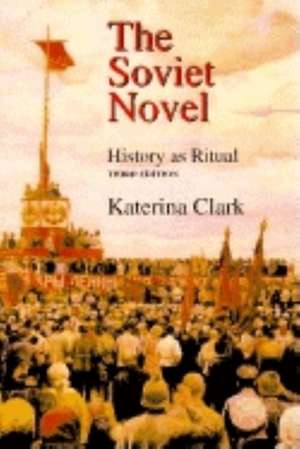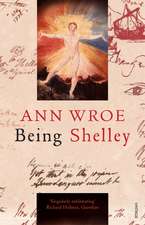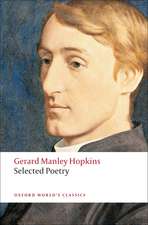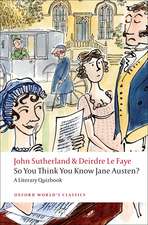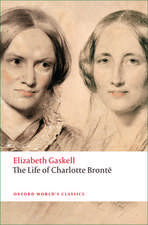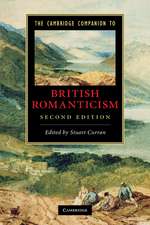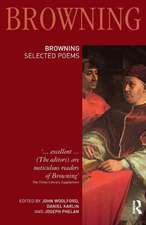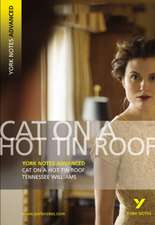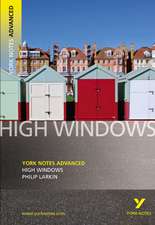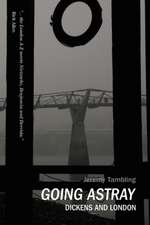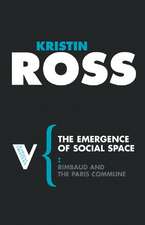The Soviet Novel, Third Edition – History as Ritual
Autor Katerina Clarken Limba Engleză Paperback – 21 aug 2000
Preț: 152.92 lei
Nou
Puncte Express: 229
Preț estimativ în valută:
29.26€ • 30.71$ • 24.29£
29.26€ • 30.71$ • 24.29£
Carte disponibilă
Livrare economică 20 martie-03 aprilie
Livrare express 05-11 martie pentru 26.80 lei
Preluare comenzi: 021 569.72.76
Specificații
ISBN-13: 9780253213679
ISBN-10: 0253213673
Pagini: 344
Dimensiuni: 140 x 215 x 24 mm
Greutate: 0.41 kg
Ediția:3
Editura: MH – Indiana University Press
ISBN-10: 0253213673
Pagini: 344
Dimensiuni: 140 x 215 x 24 mm
Greutate: 0.41 kg
Ediția:3
Editura: MH – Indiana University Press
Cuprins
Introduction: the Distinctive role of Socialist Realism in Soviet Culture
I. Socialist Realism before 1932
1. What Socialist Realism Is and What Led to Its Adoption as the Official Method of Soviet Literature
2. The Positive Hero in Prevolutionary Fiction
3. Socialist Realist Classics of the Twenties
II. High Stalinist Culture
4. The Machine and the Garden: Literature and the Metaphors for the New Society
5. The Stalinist Myth of the "Great Family"
6. The Sense of Reality in the Heroic Age
III. An Analysis of the Conventional Soviet Novel
7. The Prototypical Plot
8. Three Auxiliary Patterns of Ritual Sacrifice
IV. Soviet Fiction since World War II
9. The Post-war Stalin Period (1944-53)
10. The Khrushchev Years
11. Paradise Lost or Paradise Regained?
Conclusion
Appendix A: The Master Plot as Exemplified in the Production Novel and Other Basic Types of Novel of the Stalin Period
Appendix B: The Official Short List of Model Novels as Inferred from Speeches to Writers' Union Congresses
Afterword
Notes
Select Bibliography
Index
I. Socialist Realism before 1932
1. What Socialist Realism Is and What Led to Its Adoption as the Official Method of Soviet Literature
2. The Positive Hero in Prevolutionary Fiction
3. Socialist Realist Classics of the Twenties
II. High Stalinist Culture
4. The Machine and the Garden: Literature and the Metaphors for the New Society
5. The Stalinist Myth of the "Great Family"
6. The Sense of Reality in the Heroic Age
III. An Analysis of the Conventional Soviet Novel
7. The Prototypical Plot
8. Three Auxiliary Patterns of Ritual Sacrifice
IV. Soviet Fiction since World War II
9. The Post-war Stalin Period (1944-53)
10. The Khrushchev Years
11. Paradise Lost or Paradise Regained?
Conclusion
Appendix A: The Master Plot as Exemplified in the Production Novel and Other Basic Types of Novel of the Stalin Period
Appendix B: The Official Short List of Model Novels as Inferred from Speeches to Writers' Union Congresses
Afterword
Notes
Select Bibliography
Index
Recenzii
"In its sure grasp of a huge subject and in its speculative boldness, Professor Clark's study represents a major breakthrough. It sends one back to the original texts with a whole host of new questions. . . . And it also helps us to understand the place of the official' writer in that peculiar mixture of ideology, collective pressure, and inspiration which is the Soviet literary process." --Times Literary Supplement
"The Soviet Novel has had an enormous impact on the way Stalinist culture is studied in a range of disciplines (literature scholarship, history, cultural studies, even anthropology and political science)." --Slavic Review
"Those readers who have come to realise that history is a branch of mythology will find Clark's book a stimulating and rewarding account of Soviet mythopoesis." --American Historical Review
"It is fresh, original, cogently argued, challenging, provocative: don't miss it! . . . All along the way there are countless nuggets of insight and wit . . . a truly seminal book." --Russian Review"
"Clark's academic study, . . . is wide ranging and balanced."--Morning Star, 26 March 2001
"In its sure grasp of a huge subject and in its speculative boldness, Professor Clark's study represents a major breakthrough. It sends one back to the original texts with a whole host of new questions... And it also helps us to understand the place of the official' writer in that peculiar mixture of ideology, collective pressure, and inspiration which is the Soviet literary process." --Times Literary Supplement "The Soviet Novel has had an enormous impact on the way Stalinist culture is studied in a range of disciplines (literature scholarship, history, cultural studies, even anthropology and political science)." --Slavic Review "Those readers who have come to realise that history is a branch of mythology will find Clark's book a stimulating and rewarding account of Soviet mythopoesis." --American Historical Review "It is fresh, original, cogently argued, challenging, provocative: don't miss it! ... All along the way there are countless nuggets of insight and wit ... a truly seminal book." --Russian Review" "Clark's academic study, ... is wide ranging and balanced."--Morning Star, 26 March 2001
"The Soviet Novel has had an enormous impact on the way Stalinist culture is studied in a range of disciplines (literature scholarship, history, cultural studies, even anthropology and political science)." --Slavic Review
"Those readers who have come to realise that history is a branch of mythology will find Clark's book a stimulating and rewarding account of Soviet mythopoesis." --American Historical Review
"It is fresh, original, cogently argued, challenging, provocative: don't miss it! . . . All along the way there are countless nuggets of insight and wit . . . a truly seminal book." --Russian Review"
"Clark's academic study, . . . is wide ranging and balanced."--Morning Star, 26 March 2001
"In its sure grasp of a huge subject and in its speculative boldness, Professor Clark's study represents a major breakthrough. It sends one back to the original texts with a whole host of new questions... And it also helps us to understand the place of the official' writer in that peculiar mixture of ideology, collective pressure, and inspiration which is the Soviet literary process." --Times Literary Supplement "The Soviet Novel has had an enormous impact on the way Stalinist culture is studied in a range of disciplines (literature scholarship, history, cultural studies, even anthropology and political science)." --Slavic Review "Those readers who have come to realise that history is a branch of mythology will find Clark's book a stimulating and rewarding account of Soviet mythopoesis." --American Historical Review "It is fresh, original, cogently argued, challenging, provocative: don't miss it! ... All along the way there are countless nuggets of insight and wit ... a truly seminal book." --Russian Review" "Clark's academic study, ... is wide ranging and balanced."--Morning Star, 26 March 2001
Notă biografică
Descriere
A dynamic account of the socialist realist novel's evolution as seen in the context of Soviet culture.
